Skin-integrated haptics research - scientists propose the most immersive tactile feedback experience yet
This could be the next big step for haptic feedback.
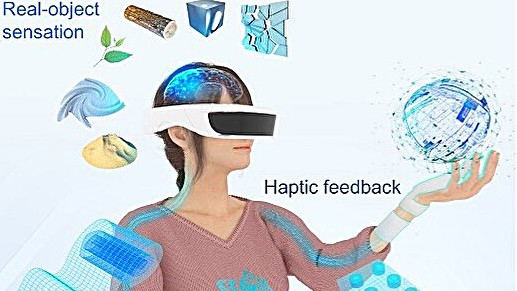
New "skin-integrated interfaces" for haptic feedback have been detailed by researchers from the City University of Hong Kong, alongside a variety of Chinese universities. The original research paper is titled "A skin-integrated multimodal interface for immersive tactical feedback," and is published on Nature.com, but we're also citing Tech Xplore's coverage for quotes and images reproduced below.
Haptic feedback, which used to just be nerd-speak for "it vibrates", has become an area of high focus for researchers and product manufacturers chasing the highest levels of immersion. Mainstream game controllers like PlayStation 5's DualSense, as well as touchpad controls on Steam Deck and Valve Index VR, are known to target a high degree of haptic feedback as well. The nifty world of haptic feedback isn't just limited to handheld controllers, though. Other big entrants include the Assassin's Creed vest that stabs you, and Microsoft's patents for an AI-assisted backpack with haptic straps.
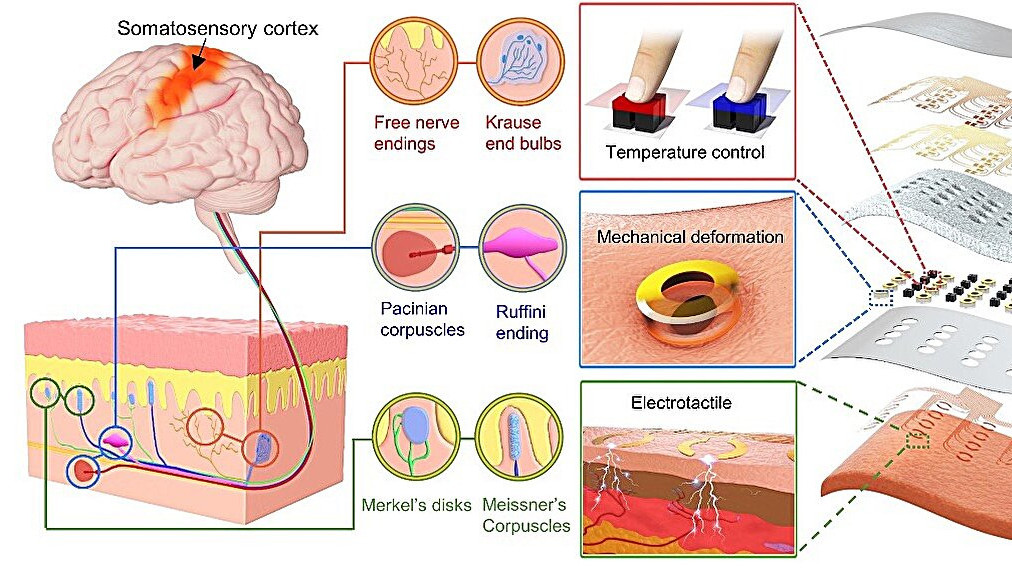
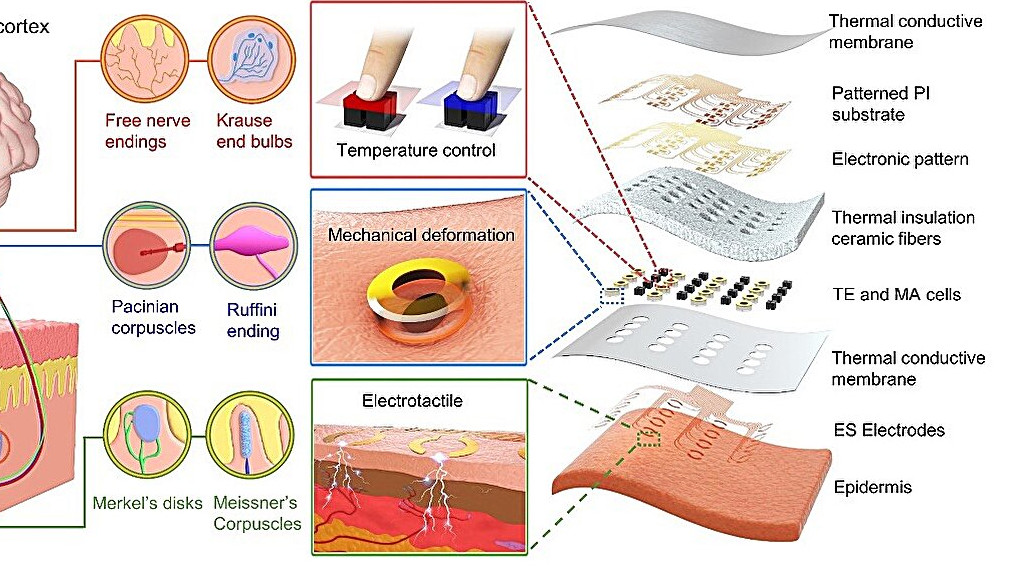
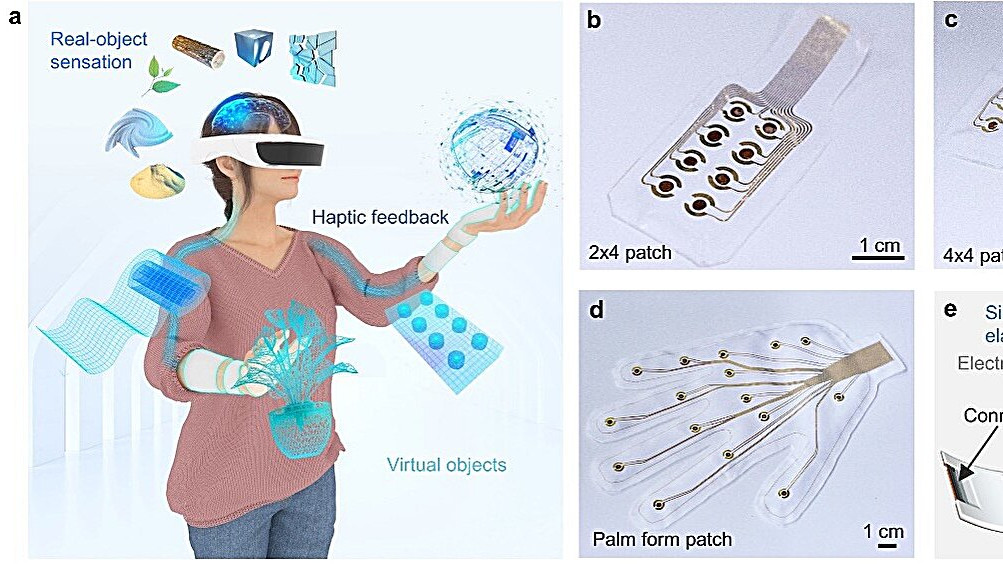
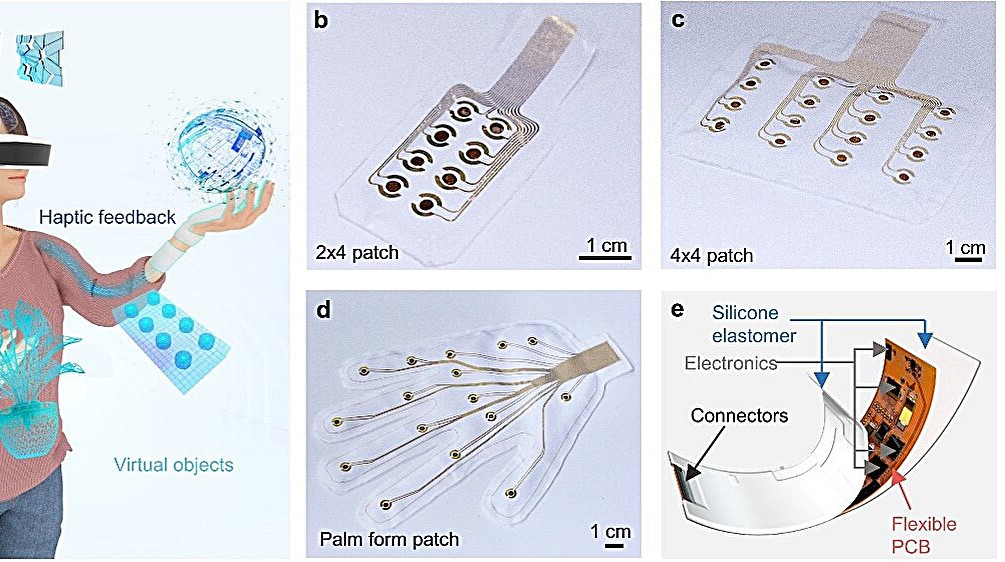
According to Ya Huang, co-author of the original paper, speaking to Tech Xplore, "Global research on flexible electronics primarily focuses on the development of flexible sensors, while...flexible feedback techniques remains limited." Research at City University of Hong Kong seems designed to tackle disconnect by advancing flexible haptic technology, both so that it can be applied in patches directly to the skin and provide highly advanced feedback.
At the core of this skin-integrated haptic feedback technology is the "multimodal haptic patch". Each patch uses a combination of temperature control, mechanical deformation, and electrotactile feedback to provide sensory data directly to the user. Huang says, "This interface selectively stimulates different receptors, thereby reproducing tactile sensations that correspond to various textures."
Huang elaborates, "The most difficult aspect in electrical stimulation primarily focuses on biological research, aiming to accurately activate nerves to generate real tactile sensations in the human body." While it seems they have the hardware they need to simulate very high-fidelity touch and vibration, it also may be true that more testing is needed, to reproduce truly accurate sensations with technology like this.
In summary, the project appears to be a promising step forward for haptic feedback, especially as it relates to the fields of VR and AR gaming. However, "skin-integrated" has all kinds of skin-crawling connotations, even if we're talking adhesive patches and wearables and not Cyberpunk 2077-levels of body modification.
Get Tom's Hardware's best news and in-depth reviews, straight to your inbox.

Christopher Harper has been a successful freelance tech writer specializing in PC hardware and gaming since 2015, and ghostwrote for various B2B clients in High School before that. Outside of work, Christopher is best known to friends and rivals as an active competitive player in various eSports (particularly fighting games and arena shooters) and a purveyor of music ranging from Jimi Hendrix to Killer Mike to the Sonic Adventure 2 soundtrack.
-
DavidC1 The skin-crawling aspect of this is that if it ever becomes commercialized, it'll be connected to the internet and will probably come with telemetry.Reply
They are doing stupid things like connecting the power grid computers to the internet, and then worrying about hacking.
Risking hacking and having your private data stolen for the sake of "immersiveness" continues on the modern trend of upside down priorities. -
slightnitpick ReplyOther big entrants include the Assassin's Creed vest that stabs you
aiming to accurately activate nerves to generate real tactile sensations in the human body.
This seems like a dangerous idea. I could see this getting to a point where the stimulation is so realistic that it triggers physiological responses such as shock or heart attacks. -
DavidC1 Reply
This IS a dangerous idea. The trend is damn everything else, as long as we can advance our technologies.slightnitpick said:This seems like a dangerous idea. I could see this getting to a point where the stimulation is so realistic that it triggers physiological responses such as shock or heart attacks.
Some people are saying excessive use of screens without giving your eyes a frequent break is resulting in serious eyesight losses in later years. Some report near-blindness.
We humans don't even understand 1% of how the human body and the mind works. Do it now, pay the penalties later mentality must stop.